Fri 25 Apr 2025
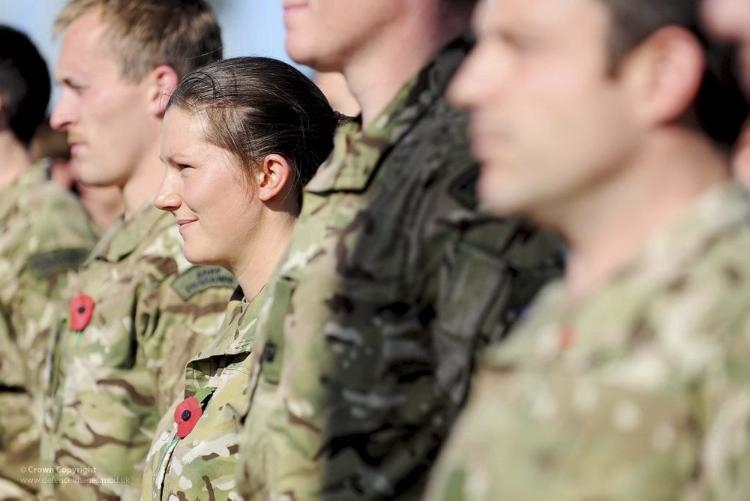 Image by Defence Imagery
Image by Defence Imagery
Encouraging women to pursue diverse roles within the defence sector is crucial for breaking stereotypes and promoting inclusivity
The UK's defence sector is making efforts to ensure gender diversity and inclusion across organisations. However, women's representation in the sector is still low, accounting for just 11.4%. The total number of female staff is 16,590, and according to government data, the Royal Air Force (RAF) has the highest proportion of female personnnel.
Today, women who make it to the armed forces must navigate the cultural and internal barriers to leadership and follow the path of extraordinarily inspiring female leaders who have led the way. Despite the obstacles to female representation in higher ranks that still exist, these exceptional leaders are serving as role models for future generations and paving the way for more women to reach leadership positions.
.jpg) RAF officer Sue Gray. Photo licence OGL 3
RAF officer Sue Gray. Photo licence OGL 3
Some notable individuals have paved the way in their respective fields. One such individual is Air Marshal Sue Gray, who has held important positions such as Director General of the Defence Safety Authority, Air Officer Commanding 38 Group Royal Air Force, and Director of Combat Air at Defence Equipment and Support in the Ministry of Defence.
Lieutenant General Susan Ridge is a distinguished retired senior British army officer who has served in various military roles and made significant contributions to the UK's defence sector. From September 2015 to July 2019, she held the position of Director General of the Army Legal Services Branch (DGALS) and was the first woman to hold the rank of major general in the British Army and the first to hold the non-honorary general officer rank since the Second World War.
Air Vice-Marshal Maria Byford inspires many, having played a prominent role in the Royal Air Force as Director of Security and Personnel. Her career began in dentistry, but once join the RAF, she quickly rose through the ranks to become Head of the Personnel Division at HQ Surgeon-General in 2011. Byford's commitment to service led her to become commander of Medical Joint Force Support in Afghanistan in 2014 before being appointed Head of Future Healthcare at HQ Surgeon-General in 2015 and later Head of RAF Medical Services in 2019. She was also appointed Honorary Dental Surgeon to the Queen (QHDS) in 2015. Byford's dedication and hard work culminated in her being appointed Air Secretary in February 2020 before retiring in July of the same year. Her remarkable achievements will continue to inspire generations to come.
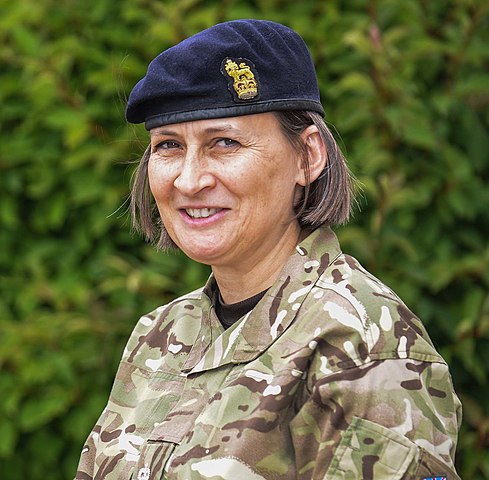 Lieutenant General Susan Ridge. Photo licence OGL 3
Lieutenant General Susan Ridge. Photo licence OGL 3
Commodore Jude Terry's career in the Royal Navy is an inspiring example of leadership. Breaking barriers and setting new standards, she became the first woman to be promoted to a Rear Admiral role. Her accomplishments include serving as Commodore Devonport Flotilla and Assistant Chief of Staff.
Dame Karen Pierce's remarkable service as the UK's Permanent Representative to the United Nations has been an inspiration to many. Her invaluable contributions to representing the country's defence and security interests on the international stage have left a lasting impact.
These leaders share a common foundation — a distinguished military background. This foundation not only shaped their leadership styles but also enabled them to navigate the complexities of the defence sector. It underscores the importance of recognising and valuing the contributions of women in military roles, paving the way for more fair representation at all levels.
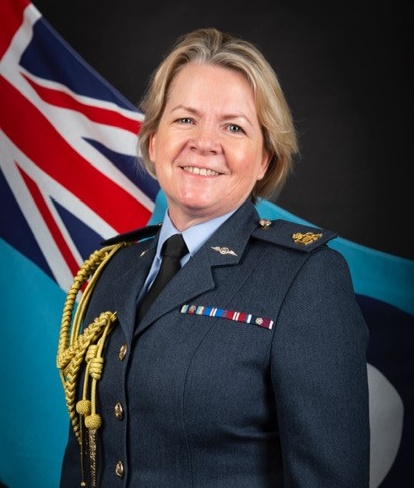 Air Vice-Marshal Maria Byford. Photo licence OGL 3
Air Vice-Marshal Maria Byford. Photo licence OGL 3
Embracing diversity of roles
These women in defence have successfully navigated diverse roles within the sector, illustrating the adaptability and resilience needed for leadership. From operational command to diplomatic and policy-related positions, their experiences highlight the need for a multidimensional approach to leadership. Encouraging women to pursue diverse roles within the defence sector is crucial for breaking stereotypes and promoting inclusivity.
Furthermore, these five women have played pivotal roles in shaping defence policies and strategies. Their involvement extends beyond traditional military command, demonstrating the significance of diverse perspectives in decision-making.
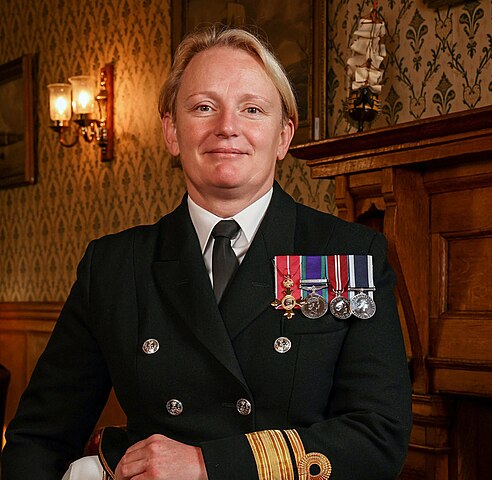 Rear Admiral Jude Terry. Photo licence OGL 3
Rear Admiral Jude Terry. Photo licence OGL 3
Advocating for gender diversity
A notable commonality among these leaders is their commitment to advancing women in the defence sector. Their advocacy has paved the way for increased gender diversity and challenged traditional norms. Their efforts underscore the importance of creating mentorship programmes, support networks, and initiatives aimed at dismantling gender biases within the sector.
While acknowledging the importance of gender diversity, it is essential to recognise these leaders for their exceptional skills, achievements, and leadership qualities, irrespective of gender. Focusing on meritocracy allows for a more inclusive approach, where individuals are recognised and promoted based on their capabilities, experience, and accomplishments rather than gender.
Next crucial steps
Breaking down the barriers faced by women in the UK defence sector requires a multifaceted approach. Let us learn from the lessons of top female leaders and adopt key strategies to pave the way for a brighter and more inclusive future.
Fostering a cultural shift is imperative. Leaders must actively promote inclusive practices, challenge stereotypes, and create an environment where diversity is celebrated. Inclusive leadership is not just about creating a fair workplace but is also crucial for enhancing organisational performance.
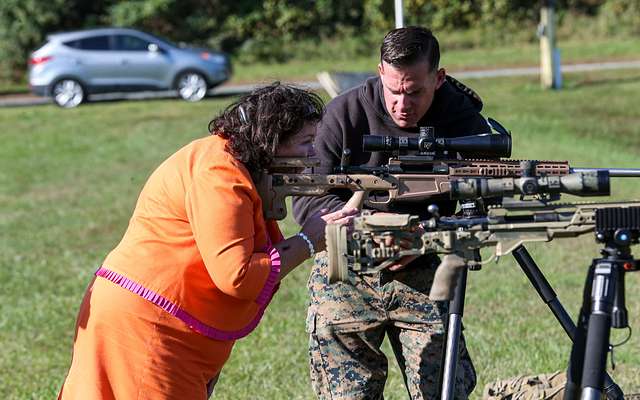 Dame Karen Pierce
Dame Karen Pierce
Developing mentorship and networking initiatives is essential to facilitate the growth of women professionals in the defence industry. Enabling access to mentors, regardless of gender, can furnish direction, encouragement, and prospects for career progression. Networking programs can aid women in establishing valuable contacts and broadening their areas of influence.
Addressing gender biases through education and awareness initiatives is also essential. These initiatives can help employees understand the immense value of having a diverse workforce and the unique contributions that women can make in the defence sector. By fostering a supportive and welcoming workplace culture, organisations can take confident steps towards building an environment that truly values the contributions of every employee. With a strong commitment to these initiatives, organisations can create a fairer and more inclusive workplace for all, empowering everyone to reach their full potential.
Striking the right life-work balance
Implementing flexible work policies is essential to support work-life balance, particularly in a demanding sector like defence. Providing options such as flexible schedules, remote work, and family-friendly policies can help keep and attract talented women while acknowledging the diverse responsibilities they may have outside of work.
It's essential to show clear performance metrics, track progress, and hold leaders accountable for promoting gender diversity. Organisations could set measurable targets and recognise and reward leaders who actively contribute to creating an inclusive environment. We understand that creating an inclusive workplace can be challenging, but we're here to support you every step of the way.
Encouraging women to pursue leadership roles
Creating pathways for women to pursue leadership involves actively identifying and grooming talent. Encouraging women to apply for leadership positions, providing leadership training programmes, and fostering a supportive environment are essential steps in this regard.
The experiences of Air Marshal Sue Gray, Dame Karen Pierce, Lieutenant General Susan Ridge, Air Vice-Marshal Maria Byford, and Commodore Jude Terry offer valuable insights into overcoming barriers in the UK defence sector. By embracing diversity, advocating for inclusivity, and challenging traditional norms, these leaders have not only excelled in their roles but also paved the way for future generations.
View all news